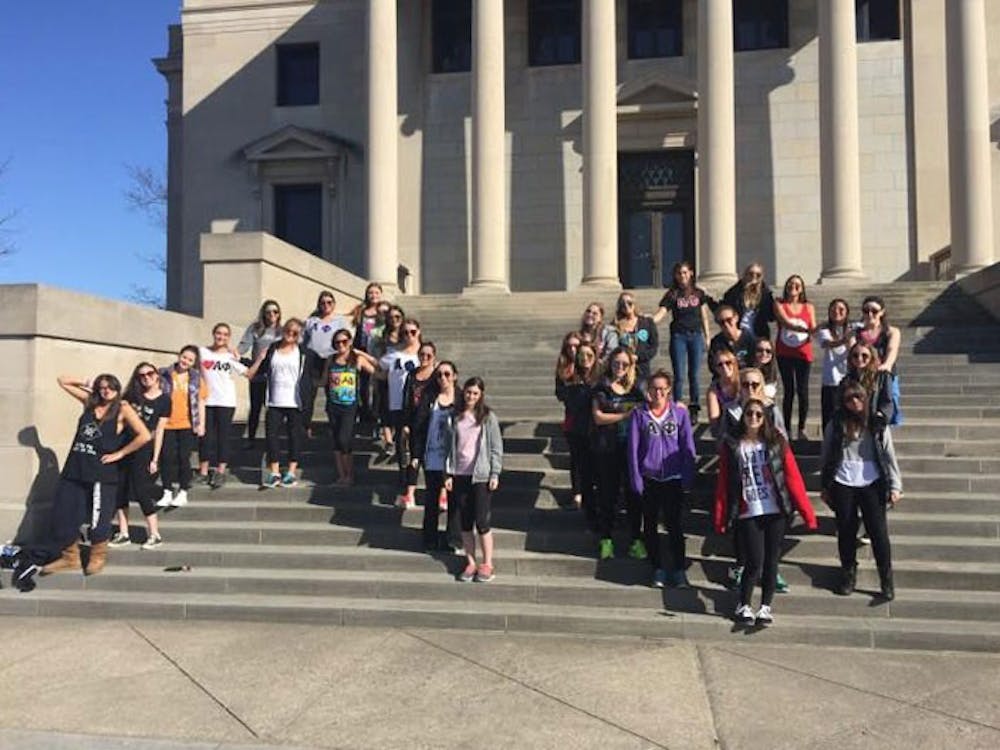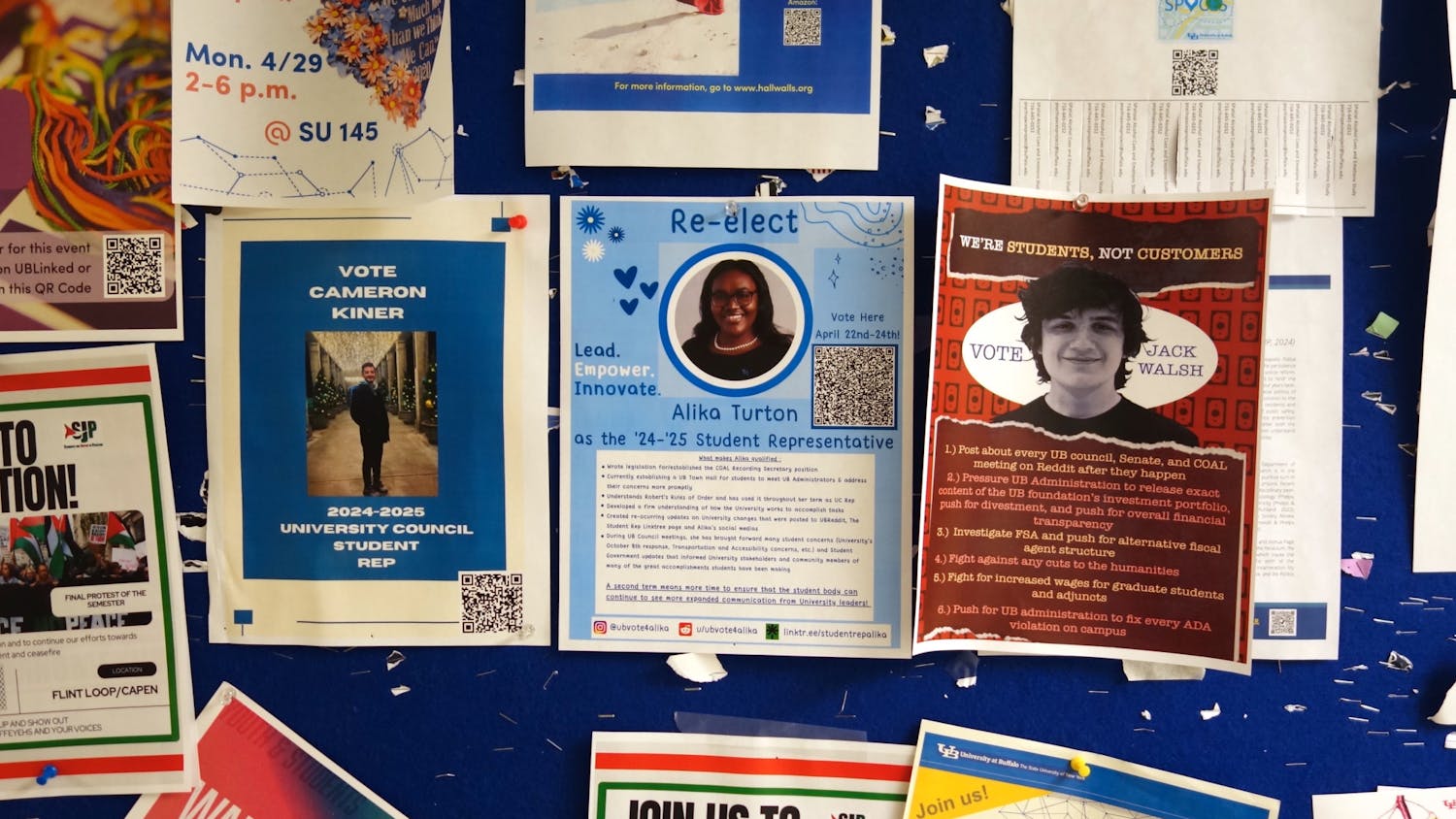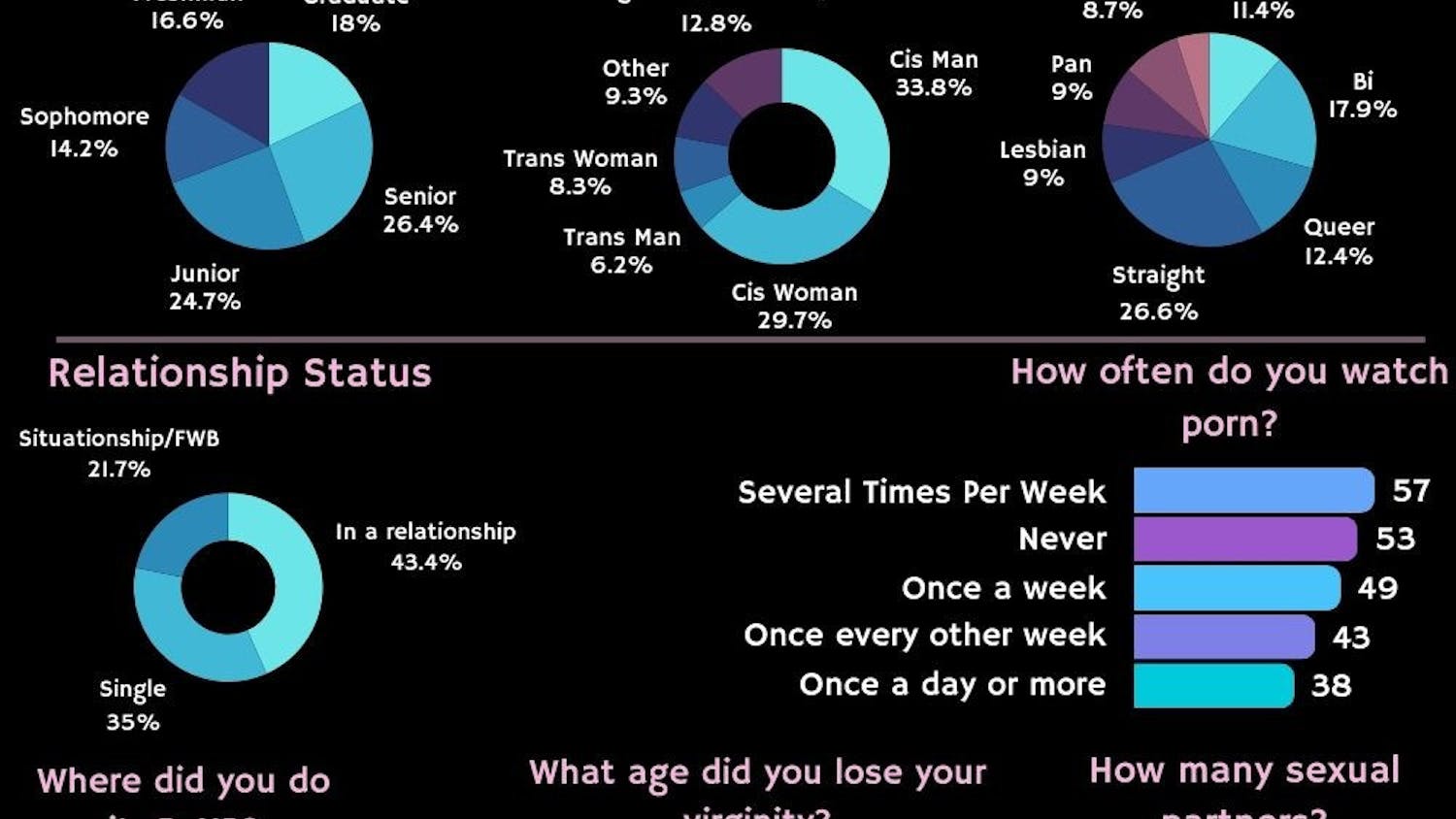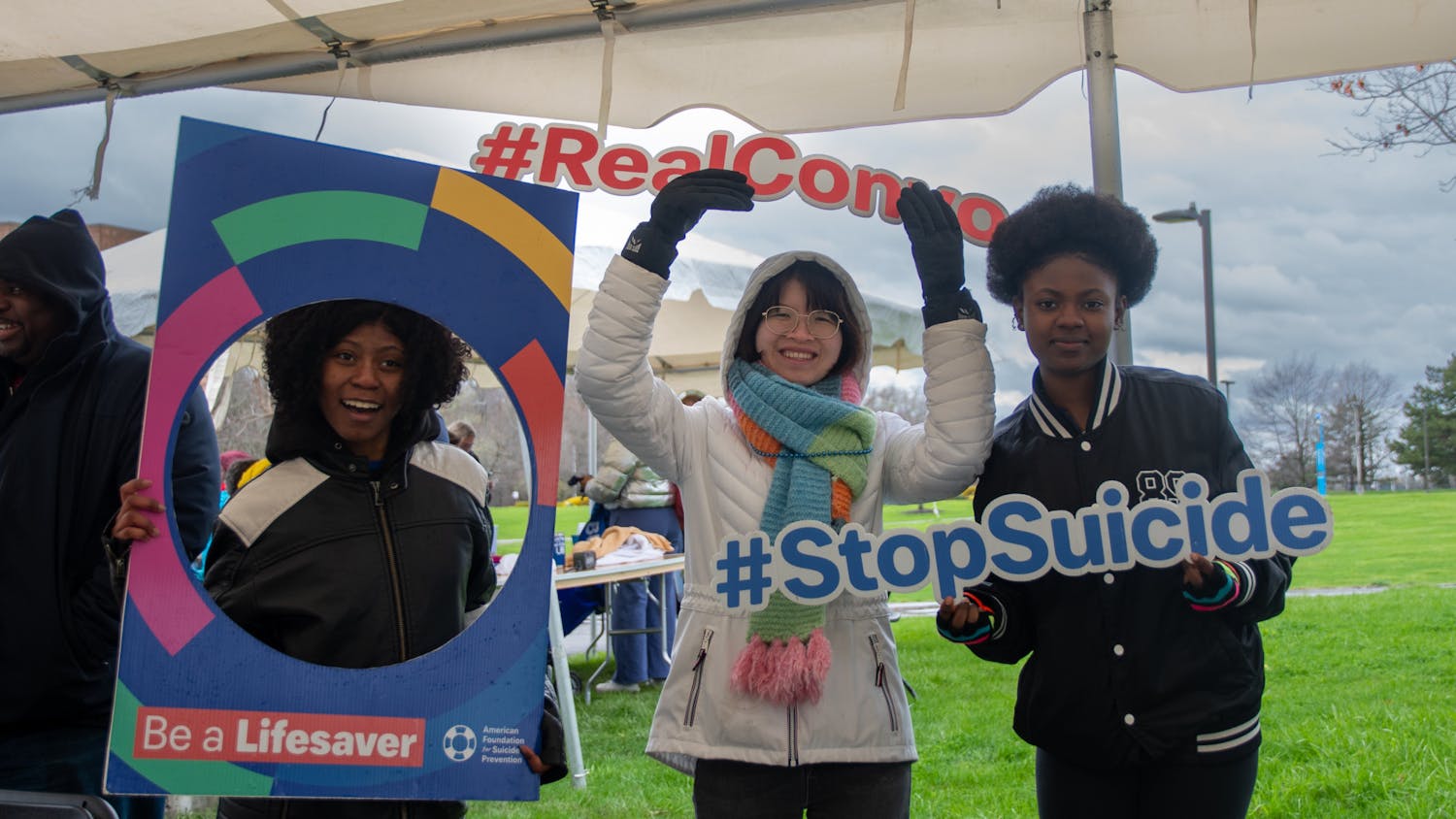Dani Weingarten, the Panhellenic President of Greek Life at UB and member of Alpha Phi, made the decision to go through formal recruitment because she wanted to find something that helped her balance time for community service, a social life and her schoolwork.
Two percent of men and two percent of women join Greek life at UB, according to College Board. These organizations participate in philanthropy events, nightlife and provide students with support throughout your college experience.
“When you first come into college, you are surrounded by thousands of people you don’t know and will be very eager to get involved and make friends,” Weingarten, a sophomore speech and hearing science major, said. “By joining Greek Life you will make friends and come across so many opportunities for social activities and community service. Greek Life prepares and helps you navigate through your college experience.”
According to UB’s Fraternity and Sorority Life website, the Panhellenic Council is “the governing body for local social sororities at UB and those that are members of the National Panhellenic Conference (NPC),” and the Inter Fraternity Council is “the governing body for men’s local social fraternities at UB and those that are members of the North-American Interfraternity Conference (NIC).”
The Panhellenic Council consists of six sororities – Alpha Gamma Delta, Alpha Phi, Alpha Sigma Tau, Delta Phi Epsilon, Phi Sigma Sigma and Sigma Delta Tau. The Inter Fraternity Council consists of 10 fraternities – Alpha Epsilon Pi, Phi Kappa Psi, Pi Kappa Phi, Pi Lambda Phi, Sigma Alpha Epsilon, Sigma Chi Omega, Sigma Pi, Sigma Tau Gamma, Tau Kappa Epsilon and Zeta Beta Tau.
“Students who become members of Greek-letter social fraternal organizations benefit from positive leadership opportunities and participation in the promotion, support and implementation of community philanthropic and service events, on and off campus,” said Pam Stephens-Jackson, assistant director of fraternity and sorority life at UB.
Jackson said that joining a social fraternal organization gives you access to national and international alumni networks for job and internship searching.
Membership in a sorority or fraternity can be rewarding in more simple ways, such as making the 30,000 student campus a little smaller.
Sydney Kaplan, a junior health and human services major and member of Delta Phi Epsilon, said that being part of Greek life makes UB feel so much smaller because there is always a familiar face around campus. She always has a sister around if she needs help with a class or someone to grab lunch with.
“Everyone in Greek life is willing to work and study together on schoolwork in shared classes,” said Joel Nassi, a senior biological sciences major and president of Alpha Epsilon Pi. “It takes off the burden of having to figure out everything on your own and gives you the ability to have someone who can help you in any topic any time.”
The recruitment process is different by gender and national council, some more formalized than others. All have GPA requirements of at least 2.25 and prospective members must have at least earned 12 college credits, Jackson said.
Many students join a sorority that is part of the NPC by going through formal recruitment in the beginning of the spring semester. This takes place over the course of a weekend in the Millard Fillmore academic classrooms in the Ellicott Complex and gives students the chance to meet all the NPC sororities that UB has.
“Throughout the weekend as you get to know each of the organizations and they will also get to know you,” Weingarten said. “At the end of each day you rank the organizations by your preference and where you would like to return the next day. The sororities ranks you as well and if you match up you will return to their room.”
At the end of this process, if a students matches up with a sorority, they will offer that students a bid.
The IFC recruitment process is less formal than the NPC.
“We always invite the interested prospective members to a multitude of brotherhood and social events,” Nassi said. “We then interview each prospective member and eventually vote on if we want to extend an invitation to learn about our brotherhood and eventually join, also known as a ‘bid.’”
Prospective members for the IFC usually hear about the fraternities from a few different sources, according to Nassi.
A brother will either meet someone and invite them to their rush events, a potential member may know about the fraternity nationally and get in touch with the rush chair to get updates about events or they may be friends with brothers already in the chapters.
This is also common within the NPC as well.
According to Nassi, Greek Life’s nightlife is always a great time because there is always something to do and nightlife isn’t only limited to weekends.
“On weekends we usually plan social events with sororities or will have brotherhood events,” Nassi said. “Usually brotherhood events include bowling, dinners and poker during the week.”
Kaplan said that her sorority goes out to mixers with fraternities two to four times a week and that Greek Life nightlife is a great way to meet new people. A mixer is when two organizations get together for an event or party.
An important aspect of the NPC and IFC is philanthropy and campus involvement. There are events such as walks, Relay For Life and fundraisers so that the sorority or fraternity can raise money for a cause that they stand for.
“This past semester my sorority held a fundraiser for cardiac care at Buffalo Wild Wings,” Weingarten said. “10 percent of the money from the food we ate went to cardiac care.”
Nassi’s fraternity has raised money for philanthropies such as Blue4Ben and the American Cancer Society and Kaplan’s sorority hosts an event called “Deepher Dude” every year, which is a male beauty pageant to raise money for the cystic fibrosis foundation.
“The most difficult part about Greek Life in our school is getting knowledge of the organizations out to the student body,” Nassi said. “Numbers of rushes, which would eventually translate to numbers in our chapter, would be much higher if more information about Greek Life was provided to students at UB.”
Dani Guglielmo is the assistant features editor and can be reached at dani.guglielmo@ubspectrum.com





